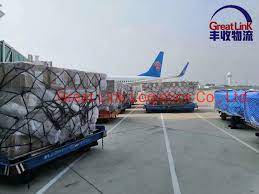
Specialists in non-oil export business have attributed the low value of agricultural produce from Africa in the international market to the raw state in which they are exported without processing and packaging to attract more financial value for them.
Many years ago, at the twilight of his Presidency, Bill Clinton visited African countries, including Nigeria and in one of his speeches advised that African would earn more revenue from their produce if they added more value to it.
The report is rife about the entrepreneur farmer, Yemisi Iranloye who started a huge agricultural farm, where she processes cassava to starch and other products and sells to major manufacturing companies like Nestle and also exports with turnover of $12 million annually.
“Today, four years after starting production, Psaltry has emerged as one of the biggest cassava processing companies in the country, with two lines that each produces between 20 to 30 tonnes of food-grade starch per day; that’s about 10,000 metric tonnes per annum,” Iranloye said.
What is remarkable, observers say, is that she was not exporting raw cassava; she processes them and exports after selling to local users.
The Managing Director of Flight Logistics Solutions, Amos Akpan said that in encouraging non-oil exports, Nigerians should take lessons from Nigeria’s current predicament in the oil exports.
“We were exporting crude oil without paying attention to creating products from the crude oil. Countries bought our crude oil and created products from it, which we imported with the forex we earned from the export of crude oil. The unit price of the finished products is higher than the proceeds from the crude oil exports.
“Now, as we discuss the need to export agriculture produce, we should emphasise the export of more products than export of produce. Tomato paste as a canned product attracts higher price than raw tomato fruit as a produce. It is the same for oranges, pineapple, mango, gum, rubber, cocoa etc. The efforts we will make to get the produce accepted in other regions’ trade blocks should also be used to get the products processed from the produce to be accepted.
“Juices make more by price tags than the orange fruit. The orange fruit has less shelf lifespan in the retail market than the sachet of juice. We really need to interact with produce trade blocks in Europe, Asia, and the Americas. Possibly bring them to see what we are doing and improve on our bargaining position. We should not rule out the politics of trade protection. Our first step is to bring together the various government and non-government groups working to streamline non-oil export procedures. This will eliminate duplicity and reduce ignorance of requirements that result in losses. Synergy needed between the farmer, the agency that regulates produce specifications, the truckers, the freight handlers, the air and sea carrier, and the international trader,” Akpan said.
The Chairman of the Board, Nelike Capital, Dr Alexander Nwuba noted that the nature of a commodity economy is getting resources to market and remarked that traditionally Nigerians simply gather and export products in raw form, attracting less than 10 percent of the value to the nation’s economy while enriching others.
“The real value is in transformation to retail but to do that the entire process from gathering to market must be managed and that has been our challenge. If suddenly an American company requested one million pieces of chocolate, we have the cocoa and most likely need to produce more but, converting cocoa to chocolate requires a lot of inputs, suppliers and producers; the process of managing all of these and delivering to specifications is the challenge, and has been our challenge even with raw materials this is where supply chain management comes in. End to End process management,” he said.
Expressing his own view, the Managing Director of Daniel Young Global Investment Limited, Daniel Young, noted that airport facilities have not been developed to make full provision for export of farm and other produce.
He noted that the Federal Airports Authority of Nigeria (FAAN) has not so far been able to demonstrate commitment to building a strong domestic cargo operation.
“As we speak, there is no functional domestic cargo terminal in Nigeria except MMA2 that has a domestic cargo bay. FAAN is currently losing over N18 billion every year on domestic agro revenue for failing to provide a turnkey cargo service system that should allow airlines and domestic cargo to flourish.
“Leveraging the gaps created by an inept revenue system and the COVID-19 ambitious cargo agents have set up a private operation cargo village next to the airport. What Nigeria needs now is robust cargo terminals with cutting- edge technology platforms with modular architecture to provide cargo – rate management, barcode labeling and processing, flight assignment etc.,” he said.

Young warned that if Nigeria fails to growth domestic cargo, which feeds international cargo, the country cannot hope to have increased efficiency in cargo handling, optimizer revenue for airport owners, cargo integrators, freight forwarders and above all enhanced cargo reporting to provide data for growth and capacity planning.
He noted that failure to take care of domestic cargo operation would only lead to international cargo failures.
Nigerians have gained a lot about export of agricultural and other products since experts from different economic sectors met at the Aviacargo Conference (CHINET 2021) on August 25 and 26 where experts brainstormed on how to boost exports, which is a huge alternative as foreign exchange earner to the country compared to oil.






